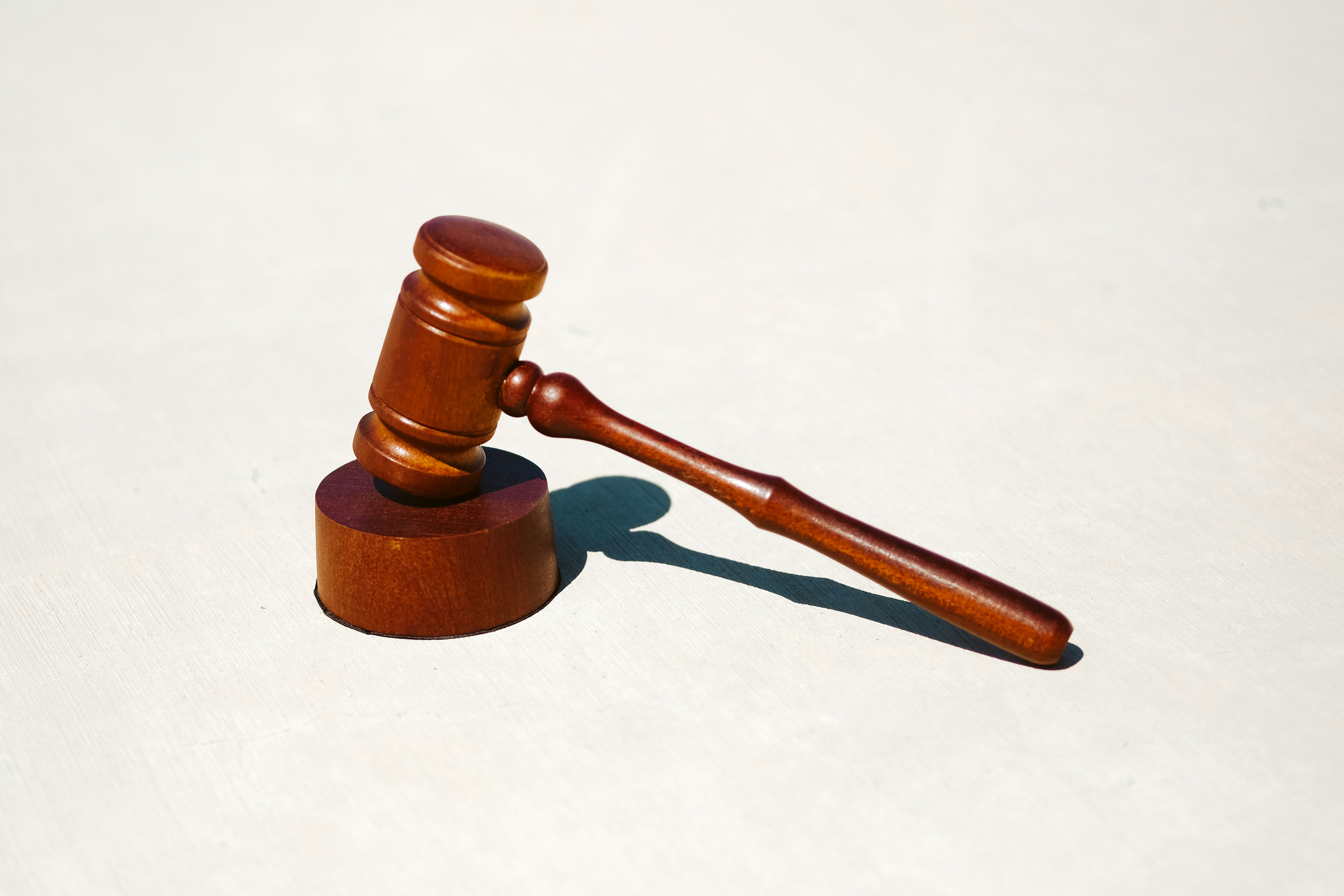Explore how to select the best personal injury attorney. Understand the lawyer’s skills, learn tips and criteria for choosing, and ensure beneficial case outcomes. Navigating the complicated landscape of personal injury cases can be a daunting task, especially when you need the right professional to represent your interests.
In the article “Finding the Best Personal Injury Attorney for Your Case”, you’ll be guided through the critical process of selecting an ideal attorney dedicated to personal injury cases.
It goes beyond mere selection to help you understand the pedigree and set of skills that an ideal personal injury attorney should possess.
Below, you’ll find indispensable tips and a rich trove of information that can mean the difference between a favorable ruling and disappointment in the courtroom.
Why Hire a Personal Injury Attorney
Recovering from personal injury can be a physical, emotional, and financial struggle. In such trying times, handling your legal case alone can be cumbersome and stressful, hence the need to hire a personal injury attorney.
Determining Liability
A competent personal injury attorney is proficient in determining liability in accident cases. They can carefully analyze the specifics of your case, gather evidence, interview witnesses, and establish who the liable party is. With their knowledge of personal injury law, they help to build a solid case that seeks to expose the negligent actions that led to your injuries.
Understanding Compensation
Understanding the compensation to which you’re entitled can be complex. Compensation in personal injury cases often covers not only medical expenses but also lost wages, property damage, and non-economic damages like pain and suffering. A skilled personal injury attorney can help you understand the compensation you deserve, ensuring you’re not short-changed by insurance companies.
Navigating the Legal Process
The legal process can be daunting, filled with complex legal terms and paperwork. Having a personal injury attorney guide you through these procedures can save you from making mistakes that might negatively affect your case. They also handle all the communications with the insurance companies, allowing you to focus on your recovery.
Factors to Consider
When choosing the right personal injury attorney, there are several factors you need to consider.
Specialization and Experience
The field of law comes with various specializations. To increase the odds of winning your case, choose an attorney who specializes in personal injury law. A specialized attorney has extensive knowledge and experience that can be invaluable in your case.
Trial Experience
While many cases settle out of court, some do proceed to trial. It is crucial, therefore, to hire an attorney with ample trial experience. A seasoned trial lawyer understands the dynamics of the courtroom and can effectively present your case before a judge or jury.
Reputation
The reputation of an attorney can significantly influence your case outcome. Attorneys with a strong track record of success will likely have established relationships with insurance companies and court personnel, which can facilitate a smoother legal process.
Client Reviews and Testimonials
These can provide you with honest feedback on an attorney’s work. They can reveal the attorney’s strengths and weaknesses and thus, help you make an informed decision.
Researching Your Options
Before making your choice, it’s wise to research your options.
Online Research
The internet can be a potent tool in your search for a personal injury attorney. Many law firms have websites that showcase their services, track records, and lawyers’ profiles. You can also read online reviews about potential attorney experiences.
Lawyer Directories
Directories provide a comprehensive list of lawyers categorized by their areas of specialization. These platforms provide information about the attorney’s experience, credentials, and fees.
Asking for Recommendations
Friends, family, or colleagues who have previously sought legal help in personal injury cases may recommend dependable attorneys.
Consulting Bar Associations
Local or state bar associations often offer lawyer referral services. They can connect you with licensed attorneys practicing within their jurisdiction.
Interviewing Potential Attorneys
After your research, you should interview your selected candidates to find the right fit.
Initial Consultation
This is usually a free session offered by most personal injury lawyers. During this meeting, you can discuss the specifics of your case, the attorney’s experience, and their approach to your case.
Asking the Right Questions
During the consultation, ask specific questions about their experience with similar cases, their success rate, their opinions about your case, and their fee structure. This will help you gauge their capabilities and suitability for your situation.
Assessing Communication and Rapport
Communication is a critical factor in legal representation. Assess if the attorney is capable of explaining complex legal processes in simple terms. Trust your gut feeling; if you feel comfortable with the attorney, they might be the right choice.
Assessing Cost and Fee Structures
Understanding the attorney’s fee structure is vital to avoid future misunderstandings.
Contingency Fee
Most personal injury attorneys work on a contingency fee basis, meaning they only get paid if you win your case. The fee typically ranges from 25% to 40% of the settlement or award amount.
Hourly Fee
Some attorneys charge their services by the hour. This option can become expensive depending on the complexity and duration of your case.
Retainer Fee
In some cases, lawyers might require a retainer fee upfront to kick start your case. This is money set aside to cover future legal expenses.
Additional Expenses
Besides attorney fees, you might also be responsible for additional expenses such as court filing fees, expert witness fees, and costs of obtaining medical records.
Evaluating Success Record
The attorney’s success record could give you an indication of their abilities.
Settlement History
A history of substantial settlement amounts is a good indicator of the attorney’s negotiation skills.
Verdicts and Awards Won
An attorney who consistently wins cases in court can provide strong representation should your case go to trial.
Case Preparation and Representation Skills
A well-prepared attorney who builds strong cases and represents their clients strongly is a good choice.
Assessing Availability and Resources
The attorney’s availability and resources are critical in ensuring that your case is well managed.
Caseload
Attorneys with a high caseload might not give your case the attention it needs. Choose an attorney who can handle your case with the diligence and focus it requires.
Staff and Support
A well-staffed law firm will likely handle the various aspects of your case more competently. They can help conduct investigations, contact witnesses, and organize paperwork among other tasks.
Response Time
Prompt representation is essential in personal injury cases. Your future attorney should be able to respond to your queries within a reasonable time frame.
Access to Experts and Investigators
In some cases, external experts might be necessary to strengthen your case. Ensure the attorney has access to such resources when the need arises.
Reviewing the Attorney’s Ethics
An ethical attorney should display honesty, integrity, and adhere strictly to professional rules of conduct.
Disciplinary Record
Check if the attorney has any disciplinary actions taken against them in the past. Such information can be obtained from your local bar association website.
Professionalism and Integrity
Assess the attorney’s level of professionalism and consistency in maintaining ethical standards.
Conflicts of Interest
Your attorney should work solely in your interest and should disclose any conflicts of interest beforehand.
Seeking Legal Advice and Recommendation
Before settling on your attorney, make sure they provide insight into your legal situation.
Reviewing Legal Options
The attorney should present all the possible legal options available to you. They should expose the advantages and disadvantages of each and guide you in decision making.
Obtaining a Clear Plan of Action
Your attorney should explain the strategies they intend to use in your case. Having a clear plan of action can provide comfort and reduce uncertainty.
Making a Final Decision
After due diligence, it’s time to make your final decision.
Considering all Factors
Weigh all the factors discussed above. Your chosen attorney should meet most, if not all, your requirements.
Trusting your Instincts
Your instinct matters. If you feel comfortable and confident with a certain attorney, they might be the right fit for you.
Signing a Retainer Agreement
Lastly, upon choosing your attorney, you will need to sign a retainer agreement. This document details the services the attorney will provide, the fees and expenses you’re expected to pay, and the attorney’s obligations. Ensure you understand everything in this agreement before signing it.
Remember, choosing the right personal injury attorney can make all the difference in getting the compensation you deserve. Take your time, research thoroughly, and make an informed decision.




